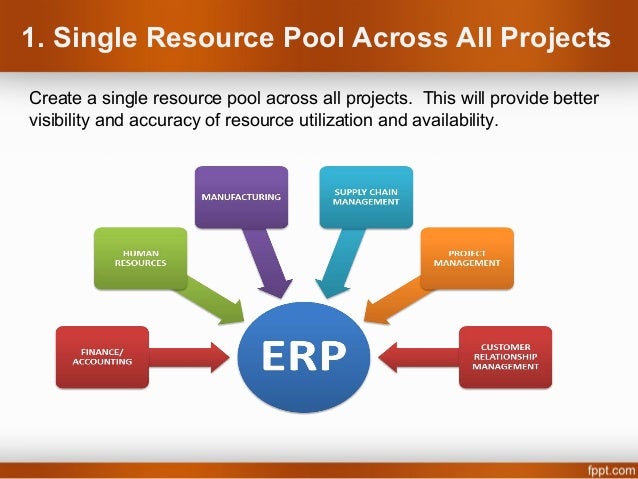Exploring Cost-Effective IT Solutions
Cost-effective IT solutions for small businesses are essential for streamlined operations, increased productivity, and reduced costs. In today’s competitive market, it is crucial for small enterprises to optimize their IT investments without compromising on quality or functionality. This article will discuss the importance of cost-effective IT solutions and highlight various strategies to help small businesses achieve their IT goals within their budget constraints.

Cloud Computing Services: Scalability and Affordability
Cloud computing services have emerged as a cost-effective IT solution for small businesses, offering scalability, flexibility, and significant cost savings compared to traditional on-premise IT infrastructures. By utilizing cloud services, small businesses can reduce capital expenditures, minimize maintenance costs, and quickly adapt to changing business needs.
Some of the leading cloud service providers include Amazon Web Services (AWS), Microsoft Azure, and Google Cloud Platform. These providers offer a wide range of services, such as Infrastructure-as-a-Service (IaaS), Platform-as-a-Service (PaaS), and Software-as-a-Service (SaaS), enabling small businesses to choose the best option for their specific needs and budget.
Cloud computing services provide several benefits to small businesses, such as:
- Scalability: Cloud services allow businesses to easily scale their IT resources up or down based on demand, ensuring optimal performance and cost efficiency.
- Flexibility: Cloud computing enables employees to access data and applications from anywhere, at any time, using any device, fostering a more agile and productive work environment.
- Cost savings: Cloud services eliminate the need for upfront investments in hardware, software, and infrastructure maintenance, reducing total cost of ownership and freeing up resources for other business initiatives.
- Disaster recovery: Cloud computing providers often include built-in disaster recovery and business continuity solutions, ensuring data protection and minimizing downtime in the event of a catastrophe.
By embracing cloud computing services, small businesses can streamline their IT operations, enhance productivity, and remain competitive in today’s rapidly evolving digital landscape, all while keeping costs under control.

Open Source Software: Low-Cost Alternatives
Open source software has gained significant popularity among small businesses due to its lower costs, customizability, and extensive community support. By leveraging open source tools, small businesses can reduce their IT expenses while still accessing high-quality, feature-rich software solutions.
Open source software is developed and maintained by a large community of developers and users, which means that it is continuously updated, improved, and secured. This collaborative approach also results in a wide range of available plugins, extensions, and add-ons, enabling businesses to tailor their software to their specific needs.
Some popular open source tools for small businesses include:
- Linux: An open source operating system that offers a secure, stable, and customizable alternative to proprietary systems like Windows and macOS.
- Apache: A powerful open source web server that can handle high traffic volumes and is compatible with various programming languages and databases.
- MySQL: An open source relational database management system that is widely used for web applications, data warehousing, and e-commerce systems.
- WordPress: A versatile open source content management system (CMS) that enables businesses to create and manage their websites without requiring extensive technical expertise.
By adopting open source software, small businesses can:
- Reduce licensing and software costs: Open source software is typically free to use and distribute, eliminating the need for expensive software licenses.
- Customize software to fit specific needs: Open source software’s modular design allows businesses to add or remove features as required, ensuring a perfect fit for their operations.
- Access a large community of developers and users: Open source projects often have extensive online communities where users can seek help, share ideas, and collaborate on new features.
- Benefit from frequent updates and improvements: Open source software is continuously updated and refined by its community, ensuring that businesses have access to the latest features and security patches.
By incorporating open source software into their IT strategy, small businesses can achieve significant cost savings, enhance productivity, and maintain a competitive edge in their respective industries.

Managed IT Services: Proactive Maintenance and Support
Cost-effective IT solutions for small businesses often involve partnering with managed IT service providers to ensure proactive maintenance, support, and monitoring. By outsourcing these critical tasks, small businesses can reduce the risk of downtime, costly repairs, and lost productivity.
Managed IT services offer a cost-effective alternative to in-house IT departments, providing small businesses with access to a team of skilled professionals who can handle various IT-related tasks, including network and infrastructure management, security monitoring, data backup and recovery, and helpdesk support. This approach enables small businesses to:
- Reduce labor costs: Managed IT services allow small businesses to avoid hiring and training in-house IT staff, reducing labor costs and associated expenses such as benefits, vacation time, and turnover.
- Access expert knowledge: Managed IT service providers employ experienced professionals with expertise in various IT disciplines, ensuring that small businesses receive expert guidance and support for their IT infrastructure.
- Improve system reliability: Proactive maintenance and monitoring help prevent IT issues before they become critical, reducing the risk of downtime and ensuring that systems run smoothly and efficiently.
- Maintain security and compliance: Managed IT services can help small businesses implement and maintain security measures to protect their data and systems, ensuring compliance with industry regulations and standards.
- Scale IT resources: Managed IT service providers can quickly and easily scale IT resources to meet the changing needs of small businesses, ensuring that they have access to the necessary infrastructure and support as they grow.
Some managed IT service providers and their offerings include:
- SolarWinds MSP: Offers a comprehensive suite of managed IT services, including remote monitoring and management, backup and disaster recovery, and security solutions.
- ConnectWise: Provides a suite of managed IT services, including remote monitoring and management, backup and disaster recovery, and professional services automation.
- Continuum: Offers a fully-managed IT service platform, including remote monitoring and management, backup and disaster recovery, and security solutions.
By leveraging managed IT services, small businesses can access cost-effective IT solutions that help streamline operations, increase productivity, and reduce costs, enabling them to focus on their core business activities and achieve long-term success.

Virtualization Technologies: Maximizing Resource Utilization
Cost-effective IT solutions for small businesses often involve maximizing resource utilization through virtualization technologies. By creating virtual versions of operating systems, applications, and servers, small businesses can reduce hardware costs, improve server utilization, and simplify IT management.
Virtualization enables small businesses to:
- Reduce hardware costs: By consolidating multiple physical servers onto a single virtual host, small businesses can reduce hardware expenses and lower energy consumption.
- Improve server utilization: Virtualization allows small businesses to allocate resources dynamically, ensuring that servers are used efficiently and effectively.
- Simplify IT management: Virtualization technologies provide centralized management tools, enabling small businesses to manage their IT infrastructure more efficiently.
- Enhance disaster recovery: Virtualization makes it easier to create and manage backup images, simplifying disaster recovery and minimizing downtime.
- Support a flexible IT environment: Virtualization enables small businesses to create and deploy virtual machines quickly, supporting a flexible IT environment that can adapt to changing business needs.
Some virtualization solutions for small businesses include:
- VMware: Offers a range of virtualization solutions, including VMware vSphere, VMware Workstation, and VMware Fusion.
- Hyper-V: Microsoft’s virtualization platform, included with Windows Server and available as a standalone product.
- Citrix Hypervisor: A leading virtualization platform for small businesses, offering high performance and scalability.
By leveraging virtualization technologies, small businesses can access cost-effective IT solutions that help streamline operations, increase productivity, and reduce costs, enabling them to focus on their core business activities and achieve long-term success.

Cybersecurity Measures: Protecting Your Business on a Budget
Cost-effective IT solutions for small businesses should always include robust cybersecurity measures. With the increasing number of cyber threats, small businesses need to implement cost-effective security measures to protect their data and systems without breaking the bank.
Here are some cost-effective cybersecurity measures for small businesses:
- Firewalls: Implement a reliable firewall to protect your network from unauthorized access and block suspicious traffic.
- Antivirus software: Install antivirus software on all devices to detect and remove malware, viruses, and other malicious software.
- Secure passwords: Implement a strong password policy, requiring employees to use complex and unique passwords for each account.
- Multi-factor authentication: Implement multi-factor authentication to add an extra layer of security to your accounts and systems.
- Regular software updates: Keep all software and systems up-to-date with the latest security patches and updates.
- Employee training: Provide regular cybersecurity training to employees to help them identify and avoid potential threats, such as phishing emails and suspicious links.
- Backup and recovery: Implement a reliable backup and recovery solution to ensure that your data is safe and recoverable in case of a cyber attack or system failure.
Some cost-effective cybersecurity tools for small businesses include:
- OpenDNS: A free DNS service that provides content filtering and malware protection.
- Windows Defender: A free antivirus software that comes built-in with Windows 10.
- LastPass: A password manager that offers multi-factor authentication and secure password sharing.
- Duo Security: A multi-factor authentication solution that offers affordable pricing for small businesses.
- Acronis Cyber Protect: A backup and recovery solution that includes antivirus and malware protection.
By implementing these cost-effective cybersecurity measures and tools, small businesses can protect their data and systems from cyber threats while staying within their budget.
Telecommunication Solutions: Enhancing Collaboration and Productivity
Cost-effective IT solutions for small businesses should include telecommunication solutions that can help improve communication, collaboration, and productivity while reducing travel and communication costs. With the rise of remote work and virtual teams, telecommunication solutions have become essential for small businesses to stay connected and competitive.
Here are some cost-effective telecommunication solutions for small businesses:
- VoIP (Voice over Internet Protocol): VoIP is a cost-effective alternative to traditional phone systems, allowing small businesses to make and receive calls over the internet. VoIP offers features such as call forwarding, voicemail to email, and auto-attendant, which can help small businesses improve their communication and customer service.
- Video conferencing: Video conferencing solutions such as Zoom, Microsoft Teams, and Google Meet can help small businesses conduct virtual meetings, webinars, and online events. Video conferencing can help small businesses save on travel costs and improve collaboration and communication with remote teams.
- Instant messaging: Instant messaging platforms such as Slack, Microsoft Teams, and Google Chat can help small businesses improve their internal communication and collaboration. Instant messaging allows for real-time communication, file sharing, and integration with other productivity tools.
Some cost-effective telecommunication tools for small businesses include:
- RingCentral: A VoIP solution that offers affordable pricing plans for small businesses, including unlimited calling, text messaging, and voicemail to email.
- Zoom: A video conferencing solution that offers a free plan for small businesses, including unlimited meetings with up to 100 participants and 40 minutes limit per meeting.
- Slack: An instant messaging platform that offers a free plan for small businesses, including unlimited messaging, file sharing, and integration with other productivity tools.
By implementing these cost-effective telecommunication solutions and tools, small businesses can improve their communication, collaboration, and productivity while reducing travel and communication costs.

Hardware as a Service (HaaS): Leasing Instead of Buying
Cost-effective IT solutions for small businesses often involve finding ways to reduce upfront costs and simplify IT management. Hardware as a Service (HaaS) is one such solution that can help small businesses save money by leasing instead of buying hardware. HaaS allows small businesses to rent hardware equipment from a service provider, reducing upfront costs and allowing for easy upgrades and replacements.
Here are some benefits of HaaS for small businesses:
- Reduced upfront costs: HaaS allows small businesses to pay for hardware equipment on a monthly or annual basis, reducing upfront costs and allowing for better budgeting.
- Easy upgrades and replacements: HaaS providers typically handle hardware upgrades and replacements, reducing the burden on small businesses and ensuring that they have access to the latest technology.
- Simplified IT management: HaaS providers typically handle hardware maintenance and support, reducing the burden on small businesses and simplifying IT management.
Here are some HaaS providers for small businesses:
- Dell Technologies: Offers a range of HaaS solutions for small businesses, including servers, storage, and networking equipment.
- Hewlett Packard Enterprise (HPE): Offers a range of HaaS solutions for small businesses, including servers, storage, and networking equipment.
- Lenovo: Offers a range of HaaS solutions for small businesses, including laptops, desktops, and servers.
By implementing HaaS, small businesses can reduce upfront costs, simplify IT management, and ensure access to the latest technology. HaaS is a cost-effective IT solution that can help small businesses stay competitive and agile in a rapidly changing technological landscape.

